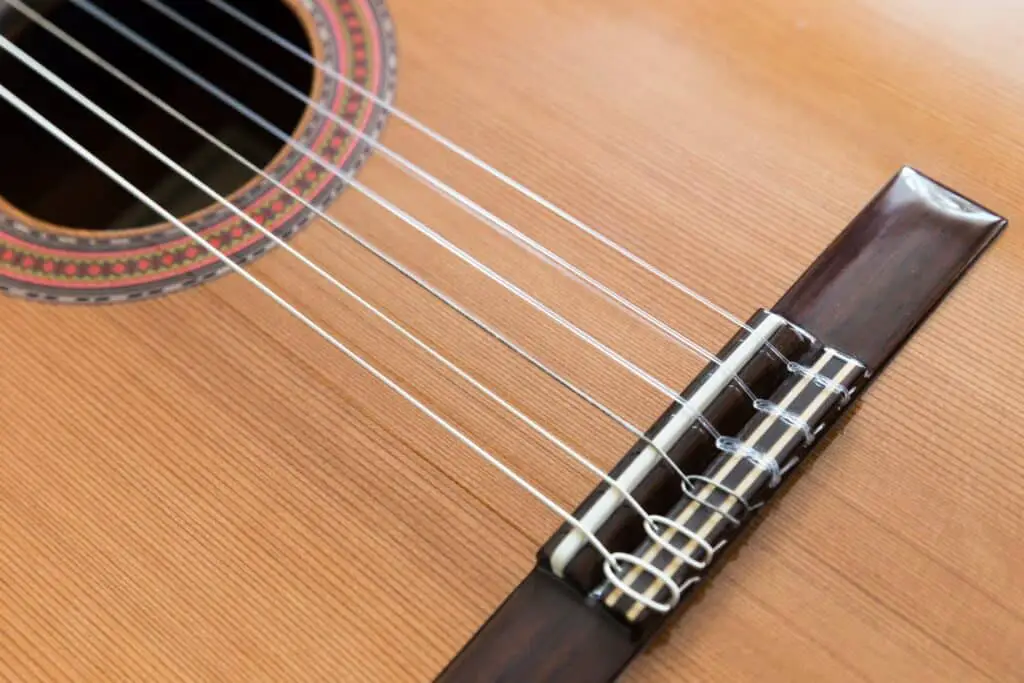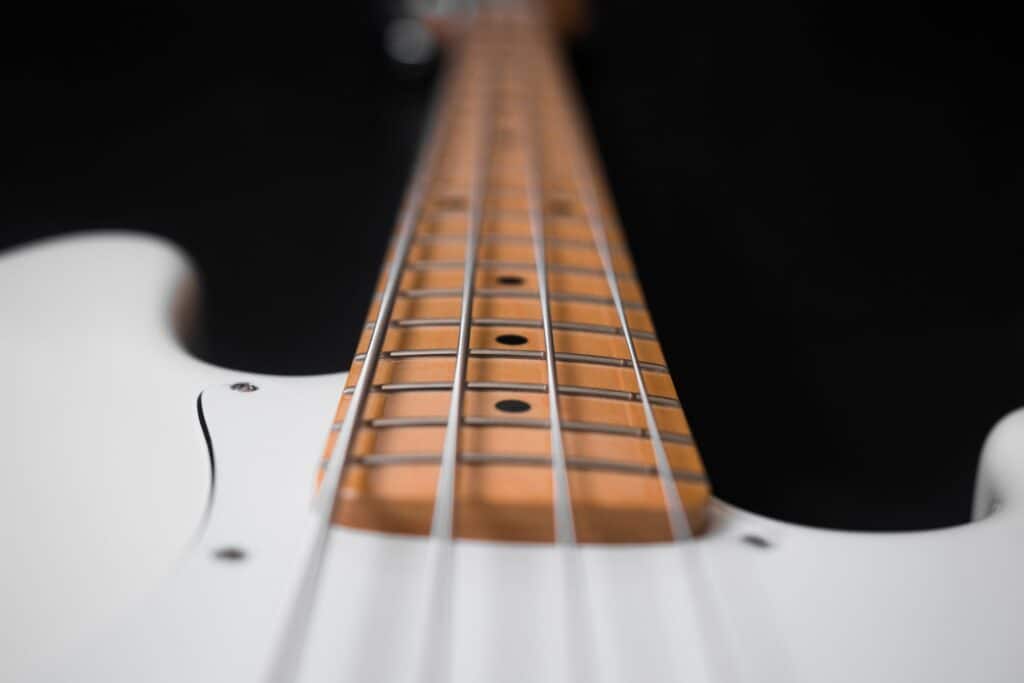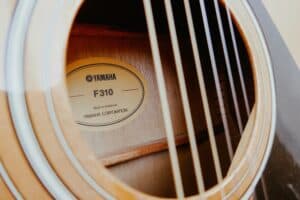
Many people think that all guitars have the same kind of strings, which is far from the truth. There are many different types of guitar strings, each made up of different material. All these variations of guitar strings significantly impact the sound coming from your instrument.
So, what exactly are guitar strings made of?
Generally, there are two primary materials used to make guitar strings. The first one is metal with its alloys and the second one is nylon. After that, we have further classifications of these two materials.
Choosing the correct string for your guitar is crucial. Some strings are made explicitly for unique guitars. One wrong decision can have a terrible impact on your music quality and in the worst scenario, even ruin your guitar.
This article will help you understand what different types of guitar strings exist and what they are made of.
String Materials

Several types of materials are used in making guitar strings. That is because the material of the string affects the sound the guitar makes.
For example, steel strings make a really sharp sound opposing nylon strings, which make a warm and mellow sound. Also, different types of guitars use different types of strings.
Metal Strings
You can find metal strings on most steel-string acoustic guitars and electric guitars. Metal has a brighter sound making it a good material for rock and metal genres. However, many different combinations of metals like copper and steel are paired with other alloys to get unique sound variations.
Nickel and Steel Strings
Nickel and steel strings are the most popular pure-metal strings out there that you can find mostly in electric guitars. Usually, a steel-string is coated with a layer of nickel that protects it from corrosion and gives warmth to its sharp sound.
You can also find strings made of pure nickel or pure steel, but these strings compared to each other sound very different.
Rock and metal players prefer steel strings, while nickel strings are famous among blues players.
Bronze Strings
Bronze is an alloy of copper and tin. Surprisingly, bronze strings used in guitars are mostly advertised as 80/20 bronze. It means that they contain 80% copper and 20% zinc. However, the alloy of copper and zinc is called brass.
Well, it is what it is. You can also find bronze-coated steel strings, which have a rather cutting sound and are usually used for bigger-sized guitars.
80/20 bronze strings are very versatile and can be used for most guitars. They offer a clean and bright tonal quality, loved by many enthusiasts.
Phosphor Bronze Strings
These strings are made of 92% copper and 8% tin. Phosphorus is used only in trace amounts but significantly improves durability and shields the strings from corrosion.
This specific string type is used by finger-pickers and folk players due to its midrange sound quality.
Brass Strings
Brass strings are also one variation of steel strings where you’ll find a coating of brass over steel. This copper-zinc alloy is used for small-sized guitars and has a very different and unique tonal quality and they make a brighter sound than other types of steel strings.
Stainless Steel Strings
Stainless steel is a combination of different metals and has many variations. The most significant advantage is its longevity, which makes the strings last much longer and highly resistant to corrosion.
Due to its sturdiness, it has a bright and sharp output which is perfect for making distortions with an electric guitar.
Nylon Strings
Nylon is a synthetic material that is entirely different from all metal strings and their alloys. They are found on a few acoustic guitars, but they are mainly used for classical guitars.
These guitars are specifically made to be paired with nylon strings, and you should not try to put metal strings on a classical.
Nylon strings are very cost-effective, and due to their high tensile strength, they are very durable.
Nylon strings produce a rich, warm and mellow tone, suitable for the classical genre. Nowadays, nylon strings also have many variants where they are mixed with different synthetic fibers for the desired outcome of the sound.
Take Away
Choosing the correct type of strings for your guitar can be a make-or-break decision. If you’re not sure whether you’re fond of the brighter metal strings or the smooth nylon strings, you should experiment and find what suits your taste.
These were all the materials from which guitar strings are made of. Once you get to know the properties of each string, you can use the right strings for the suitable occasion to take your performance to a whole new level.









